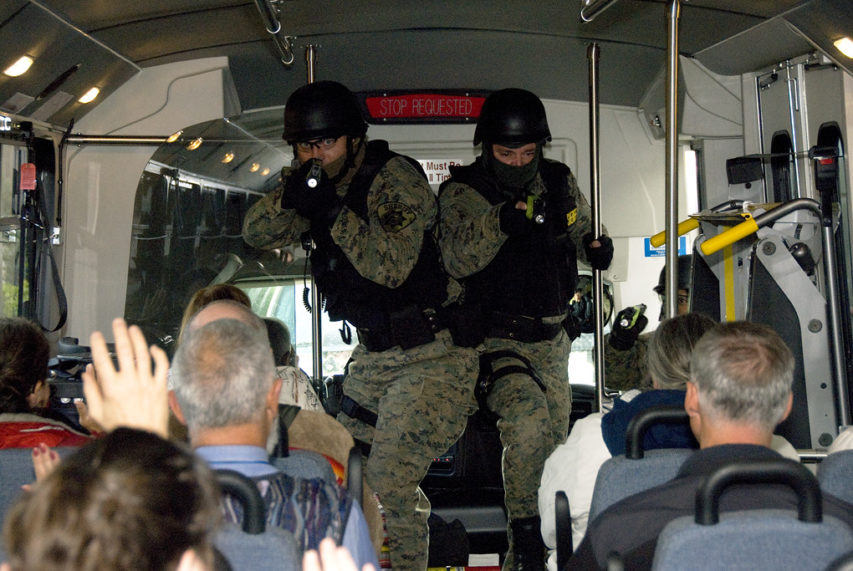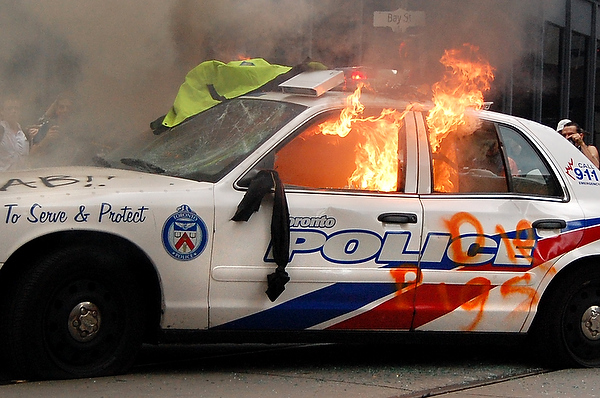A guest editorial at Catallaxy Files from former Australian senator David Leyonhjelm discusses the original civilian police force, the London Metropolitan Police, and the rules that governed their actions. Contrasting the origins of modern policing, he then discusses the ways police organizations have changed:
One issue is the steady militarisation of the police. This ranges from references to the public as civilians and assertions that the police place their lives on the line every day, to black uniforms, military assault rifles and equipment such as armoured personnel carriers. This is a bigger concern in America, where a lot of military surplus equipment is sold to police and the emphasis on armed conflict is more pronounced, but the trend is the same here.
When they see themselves as soldiers in a war, it is not surprising that some police have no regard for public welfare. The negligence leading to the death of Miss Dhu in police custody in [Western Australia], and of course the notorious deaths in America, are obvious examples of where that leads.
Peel’s principles also stipulate that police should only use physical force when persuasion, advice and warning are insufficient, to use only the minimum force necessary, and that the cooperation of the public diminishes proportionately with the necessity of the use of physical force and compulsion.
Yet how often do we see police resort to violence when making an arrest? People are tackled, forced to the ground with knees on their back and neck amid blows, kicks and the vindictive use of Tasers, simply to apply handcuffs. Being “non-compliant” or raising verbal objections is enough to prompt this, and some have died as a result.
Moreover, when the victims of such treatment are not convicted or imprisoned, such rough handling amounts to a form of punishment. That is also in conflict with Peel’s Principles, which require the police to avoid usurping the powers of the judiciary by authoritatively judging guilt and punishing the guilty.
Enforcement of the Covid rules, including the authoritarian decrees and fines imposed by state premiers, provide further examples: petty closing of cafes, prosecutions for reading in a park, chasing individuals along a closed beach, stopping fishing from a pier the day after 10,000 have gathered in a demonstration, and even a Police Commissioner who denounces the cruise industry as criminal, are among them. The Australian public are never likely to accept the police as one of them while those sorts of things occur.
Change is necessary. Corrupt and thuggish police must be rooted out and the enforcement of laws that the public does not support, including political and victimless crimes, should never have priority. Moreover, arresting people seldom solves problems that originate in drug use, alcoholism, mental illness and poverty.
The fundamental responsibility of governments is to protect life, liberty and property. If the police were to focus on these while upholding Peel’s Principles, Australians might even come to their aid.





